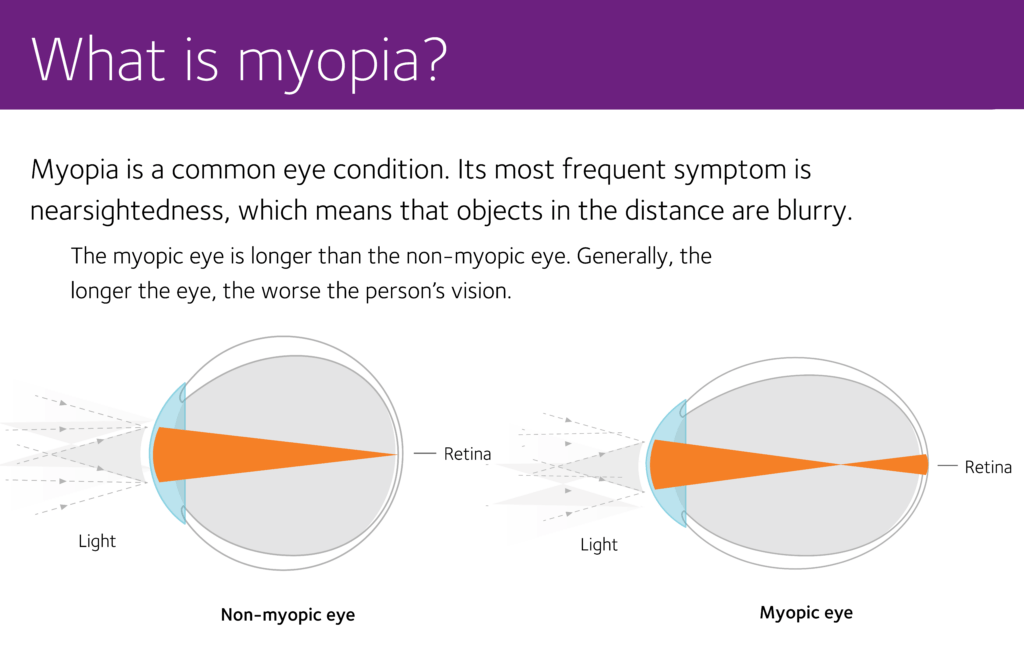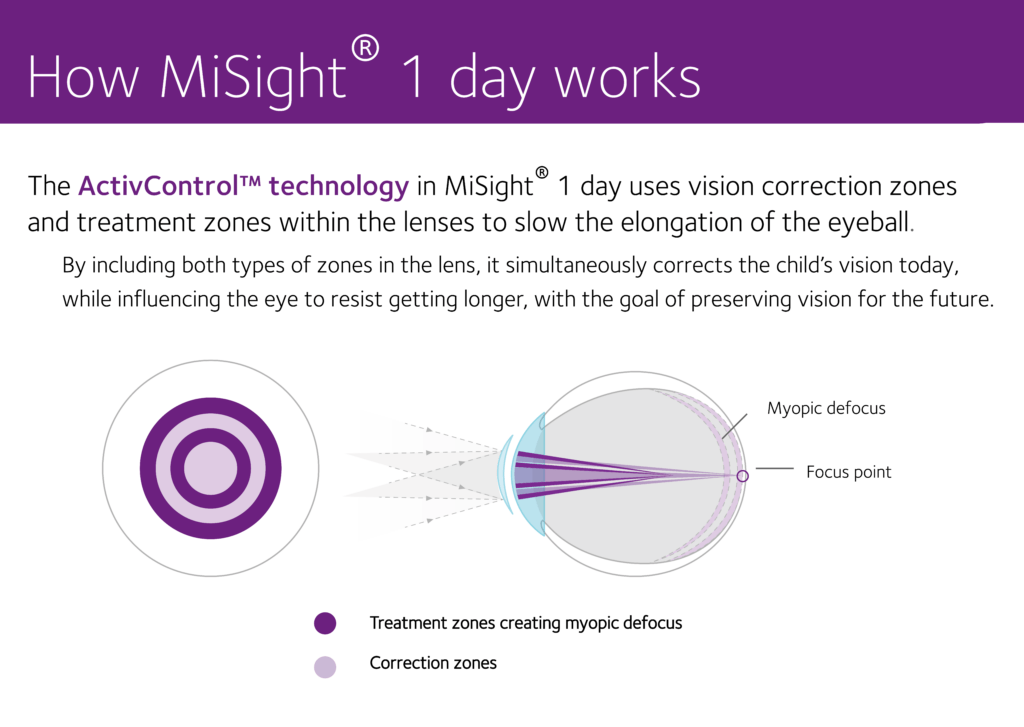Myopia Management Program in Southern NH
Myopia, also referred to as nearsightedness, is a vision condition in which people can see close objects clearly but objects farther away appear blurred. In the U.S., 40 percent of kids have myopia, compared to just 20 percent three decades ago, according to the American Academy of Ophthalmology. The World Health Organization (WHO) projects that by 2050 myopia is expected to affect half the world’s population.

A child’s eyes grow the fastest when they are between the ages of 6-18 years old. If their eye grows irregularly, it can lead to vision problems. Myopia occurs if the eyeball is too long or the cornea is too curved. As a result, the light entering the eye does not focus and distant objects look blurred. If one or both parents are myopic (nearsighted), there is an increased chance their children will be too. Because persons with high myopia are at a greater risk of developing cataracts, glaucoma, macular degeneration and retinal detachments, myopia management may help preserve eye health.
Treatment options include special-designed soft contact lenses, orthokeratology contact lenses, and pharmacological interventions. We offer all three options to our patients. Below is a detailed explanation of each option:
-
Soft Contact Lenses
Myopia control soft contact lenses that use innovative technology to help slow down the progression of a child’s myopia. MiSight lenses are the only FDA approved contact lens for myopia management. MiSight is a daily disposable lens that can provide benefits for those who do not want to wear spectacles or use long-term medication. These lenses should be disposed of after wearing and are never approved for sleeping in. Based on the clinical study, it is recommended that the patient wear the lens for a minimum of 10 hours per day for at least 6 days per week. There are no additional risks compared to regular daily contact lens wear.

-
Atropine Drop Therapy
Atropine is an eye drop that typically makes the pupil bigger causing lights to seem brighter and near vision blurry. Low concentration has been shown to slow the progression of nearsightedness without increasing pupil size or changing near vision dramatically. Glasses are still needed with this form of myopia therapy. Atropine has been FDA approved for treatment in other eye conditions, however, low dose atropine for the use of slowing down nearsightedness has yet to be FDA approved and use of these drops is considered off label use.
How Do I Find Out if My Child is a Candidate?
In your child’s yearly routine eye exam, Our Doctors will provide you with a detailed evaluation to determine if your child is a candidate and recommend the best treatment to proceed with. Your child’s evaluation will decide which of these options would minimize the progression of myopia as much as possible.
For the evaluation, please bring:
1. Your child’s current glasses.
2. Records from any previous eye doctors (unless all exams were done here).
3. A detailed family history, including glasses or contact lens prescriptions for parents and siblings.
4. Sunglasses for your child to wear after the exam. We will be using a dilating drop that will make the eyes sensitive to light for approximately 24 hours. Vision may also be blurry, up close while dilated, during this time period.
Our Doctors are practicing providers with a focus on leading our Myopia Management Program. They are certified in fitting patients for this life-changing contact lens solution. Contact us and set up an appointment today!
